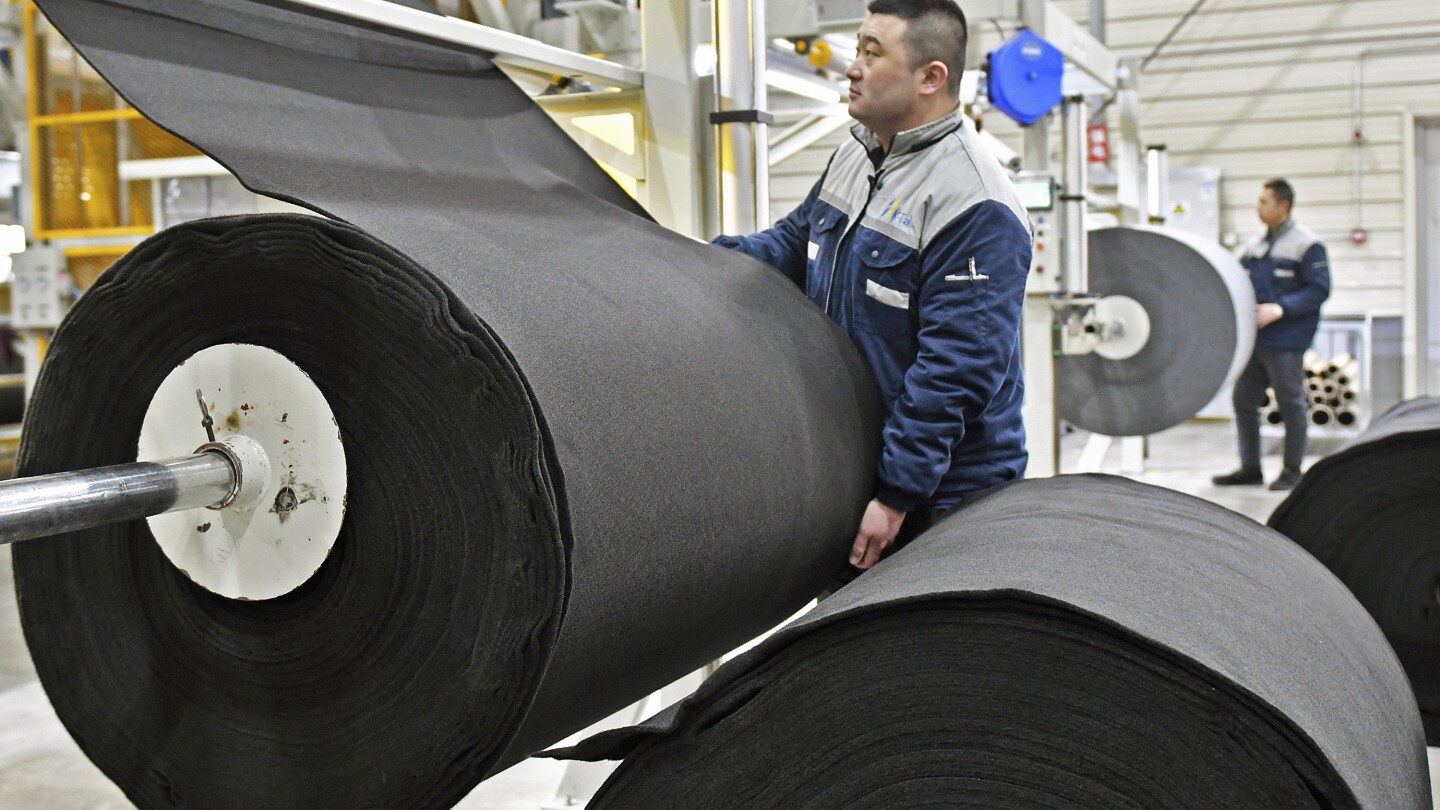HONG KONG (AP) — China’s manufacturing and investment improved in the first two months of the year, while weakness in the property sector weighed on the economy, the National Bureau of Statistics said Monday.
The report said industrial output rose 7% from a year earlier in January-February, better than analysts had forecast. Spending on factories and equipment, known as fixed-asset investments, rose 4.2%.
The real estate sector remained sluggish, with investment in real estate falling 9% in January-February compared to the same period a year earlier.
The property market is “still in a state of adjustment and transition” but policies outlined at China’s annual legislative session earlier this month will promote “stable and healthy development,” National Bureau of Statistics spokesperson Liu Aihua told reporters.
During the National People’s Congress meetings, China’s leaders pledged to refine property sector policies, including increasing financing to developers and building more affordable housing.
The signs of strength followed various moves by authorities to boost growth. The statistics bureau said retail sales climbed 5.5% and consumer prices rose for the first time since August. The consumer price index was up 0.7% in February after months of falling prices.
“Industrial production was a sizable beat, supported by strong exports in the month, while fixed assets investments on the other hand, were likely supported by a state-driven push early this year,” said Louise Loo of Oxford Economics in a note.
She said consumer spending was “buoyed temporarily” by spending related to the Lunar New Year holidays, the biggest festival of the year, and that without added government spending it would be difficult to keep up strong growth.
Beijing has set an economic growth target of about 5% for 2024, which experts say may be challenging to reach.
“We expect economic momentum to improve further in the near-term given the tailwind from policy stimulus. But this recovery may prove short-lived due to the economy’s underlying structural challenges,” said Zichun Huang, a China economist with Capital Economics.
Huang said that the correction in property construction is “still in its early stages.”
The world’s second-largest economy has struggled to bounce back after the COVID-19 pandemic.
China usually releases economic data monthly, but data for the first two months of the year are combined to avoid distortions from the weeklong Lunar New Year holidays, when many businesses and factories are closed.

